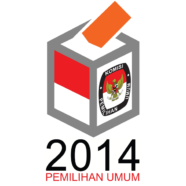Indonesia Starts Election Campaign
Indonesia’s raucous election season kicks off on Sunday with the promise of a fresh style of leadership in the world’s third largest democracy, whose economic promise has been sapped by rampant graft, confusing policy and weak rule.
An uncertain election outlook abruptly changed on Friday when the main PDI-P opposition party named the hugely popular governor of Jakarta as its candidate for July’s presidential election. That lifted even further its chances of dominating the parliamentary election on April 9.
Opinion polls suggest the presidency is governor Joko Widodo’s to lose, with old-style contenders ex-general Prabowo Subianto and tycoon Aburizal Bakrie trailing far behind.
A hint of the euphoria attached to the nomination of the charismatic Widodo, popularly known as Jokowi, was shown in the 3.2 percent jump in Jakarta share prices after the announcement.
“(It was) driven by sentiment that Indonesia will have a good president who is willing to take difficult decisions, has a good and clean historical track record … and most of all an expectation of a smooth transition of power,” said Wilianto Ie, head of research at Maybank Kim Eng in Jakarta.
It will only be Indonesia’s third direct election since it tumbled into democracy 16 years ago amid social and economic chaos in the wake of the downfall of former dictator Suharto.
Nearly 190 million Indonesians are registered to vote to choose a new parliament and so decide which parties meet a threshhold to field a candidate in the presidential election three months later.
Though close to 90 percent of the population identifies itself as Muslim, none of the Islamic parties are expected to win a major chunk of the vote, including the current leading Muslim party, PKS, whose reputation has been hit hard by a highly publicized corruption scandal.
The ruling Democrat Party of outgoing President Susilo Bambang Yudhoyono, restricted by the constitution from seeking a third term, has seen public support plummet to single digits after graft scandals claimed senior officials including the party’s former chairman and a cabinet minister.
Critics say that while Yudhoyono brought stability to Indonesia, his nearly 10 years in power has been marked by indecision and at times confusing policy, with criticism that his government has not done enough to address high levels of poverty and mounting religious intolerance.
Economic growth since he took office has averaged around 5.8 percent, high by global standards but well below what many see as Indonesia’s potential and still heavily reliant on fluctuating prices of natural resources which remain the backbone of the economy.
“I AM HERE TO SERVE YOU”
Indonesia’s new leader will be in charge of a remarkably young population that is high on ambition but low on education. That could see Southeast Asia’s biggest economy start to falter in the face of growing competition from its neighbors as the region moves toward establishing a common market from 2015.
Almost 30 percent, or 54 million, of eligible voters are under 30. Nearly half of them will be voting for the first time.
They appear captivated by Jokowi, as do the large emerging middle class and the poor. About 40 percent of the population still lives in extreme poverty, or very close to it.
The slightly built furniture manufacturer has in just over a year of running the capital turned his straight talking “I am here to serve you” style into the new face of Indonesian politics, long dominated by authoritarian figures and their powerful, wealthy cliques.
Those authoritarian figures, however, still loom over national politics.
Both parties that polls say will dominate next month’s election – PDI-P and the more pro-business Golkar – are clinging firmly to the legacies of their autocratic founders who led the vast former Dutch colony for its first five decades of independence.
PDI-P is led by ex-president Megawati Sukarnoputri, the daughter of first president Sukarno whose image, and the strongly nationalist tone it implies, is a constant motif in party propaganda.
And increasingly, Golkar is looking to the early economic successes of Suharto, the man who pushed Sukarno aside and went on to rule Indonesia for 32 years until 1998, when he was forced from office in the face of mass protests and what by then had turned into the near collapse of the economy.
A party, or coalition of parties, must have 25 percent of the national vote or 20 percent of seats in parliament to put forward a candidate for the July 9 presidential election.
Source: Jonathan Thatcher / Reuters
(Additional reporting by Kanurpiya Kapoor and Anastasia Arvirianty. Editing by Dean Yates)

